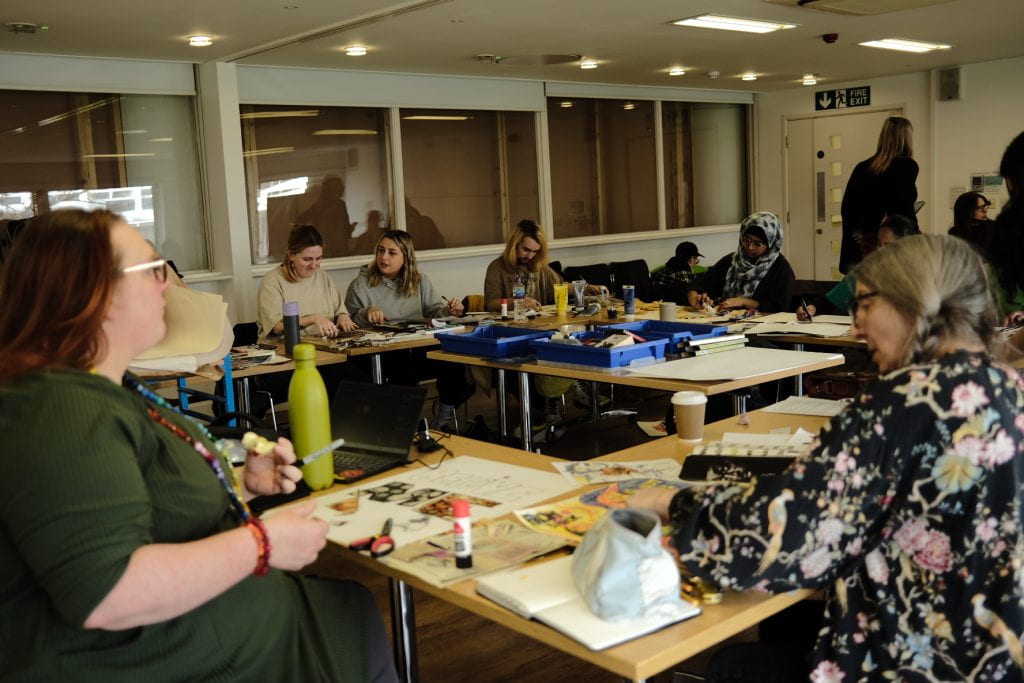Friday 8th March: International Women’s Day. INSPIRE INCLUSION
The University of Brighton’s School of Art and Media marked International Women’s Day with a 3-hour creative and academic workshop exploring issues of inclusivity within the community, within feminism and within creative and academic practice and labour.
The inclusive session ran both in-person and online, to allow for as many participants to join as possible.
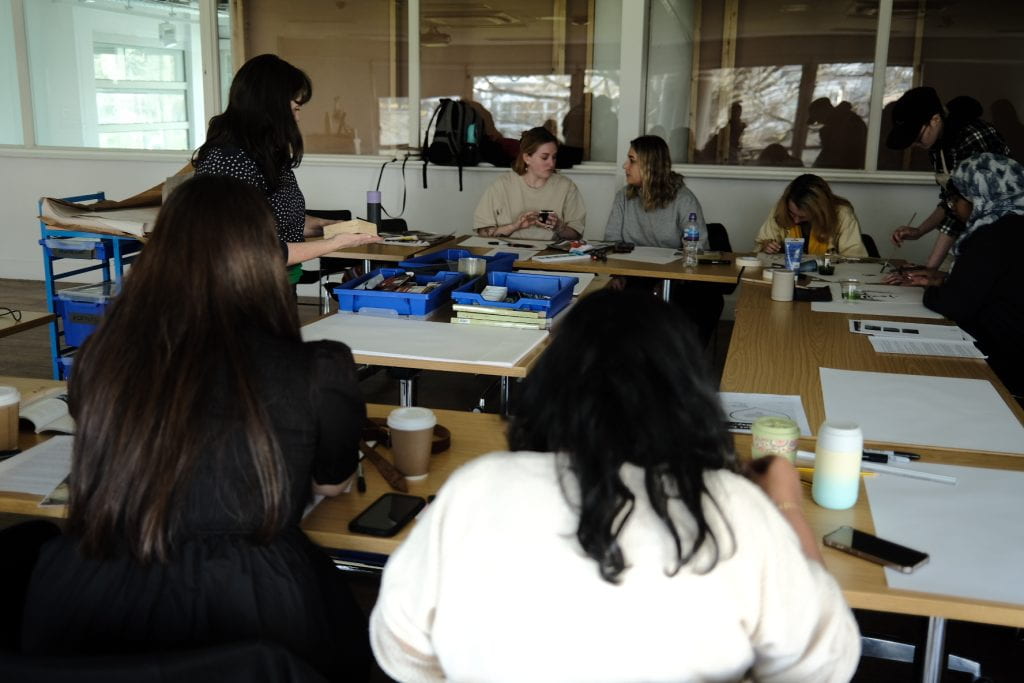


There were two workshops running concurrently for the duration of the event. Participants had the choice to engage with one or both workshops. Some materials and visuals were provided but participants were welcome to bring their own.
The output from both workshops will feed into a zine which is being co-curated by the Inclusive Practice Students.
Workshop 1: Intersectional Feminism collage workshop
The Inclusive Practice Leads Louise Colbourne and Mylinh Nguyen, along with the IPP Students ran an interactive zine workshop, where they used the speaker sessions to inform and discuss Intersectional Feminism.
Kimberlé Crenshaw who coined the term intersectionality, states that Intersectional Feminism recognises how “various forms of inequality often operate together and exacerbate each other”
Examples of feminist zines and materials was provided
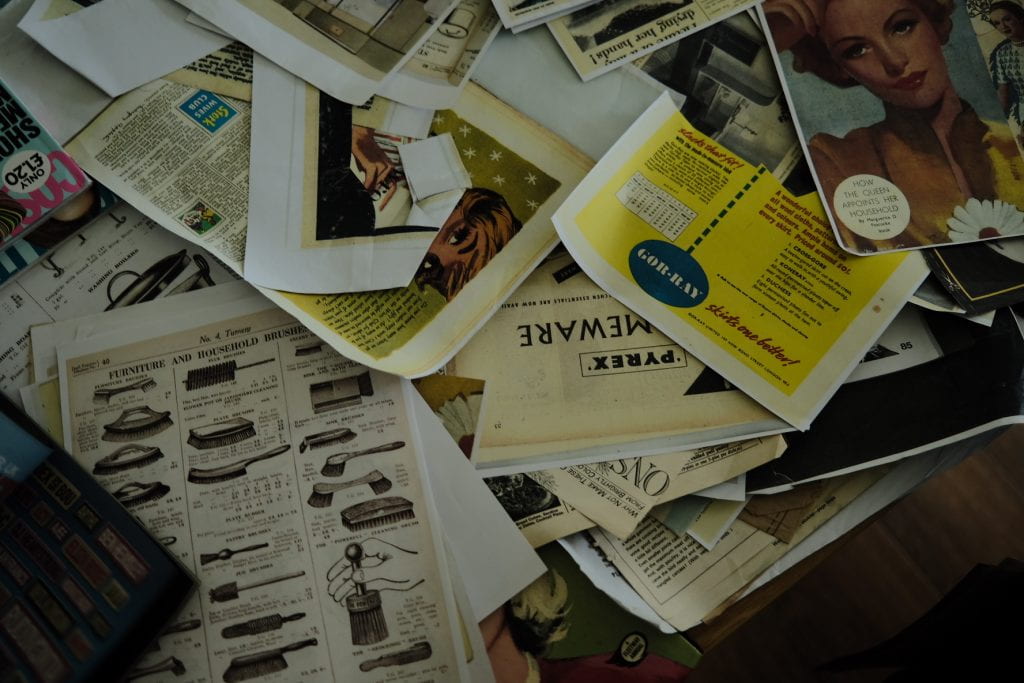


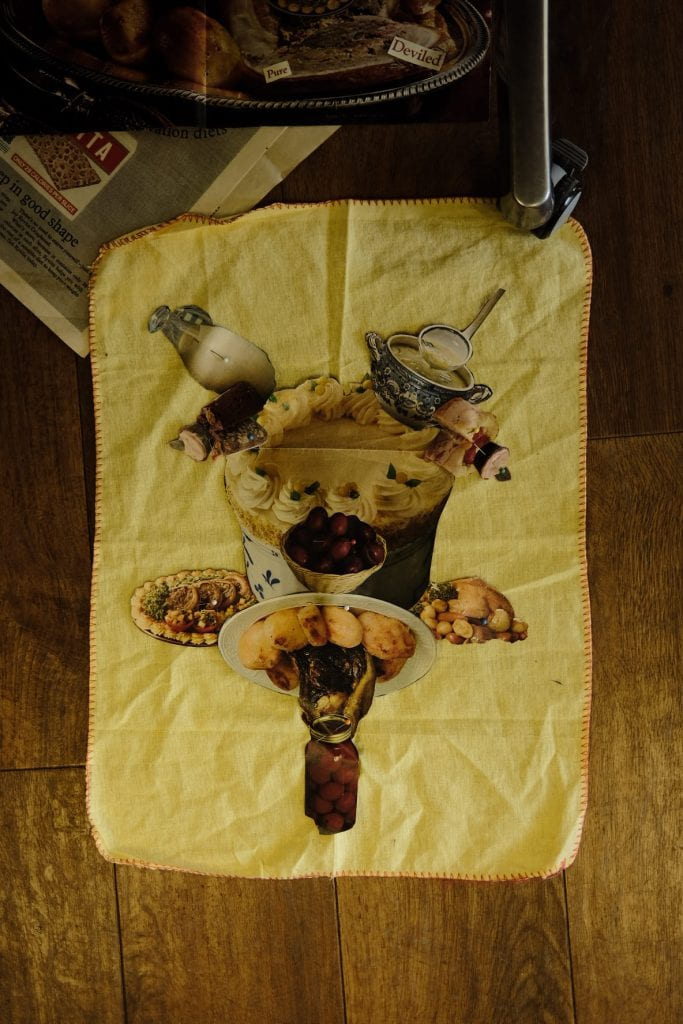

Workshop 2: Rewild Your Feral Self (a call to arms) / Let us grow wild (a demand) / Let’s grow wild (an invitation).
Senior Course Administrator, Katie Beecroft, ran a visual statements workshop. Expanding the idea of rewilding from an environmental concept, this workshop will be exploring it further as a way of discovering a sense of freeing ourselves from the dominant patriarchal systems and domestication of modern society. Using Katie’s letterpress prints as a starting point, participants were invited to create their own bold statements, voicing assertions and affirmations.



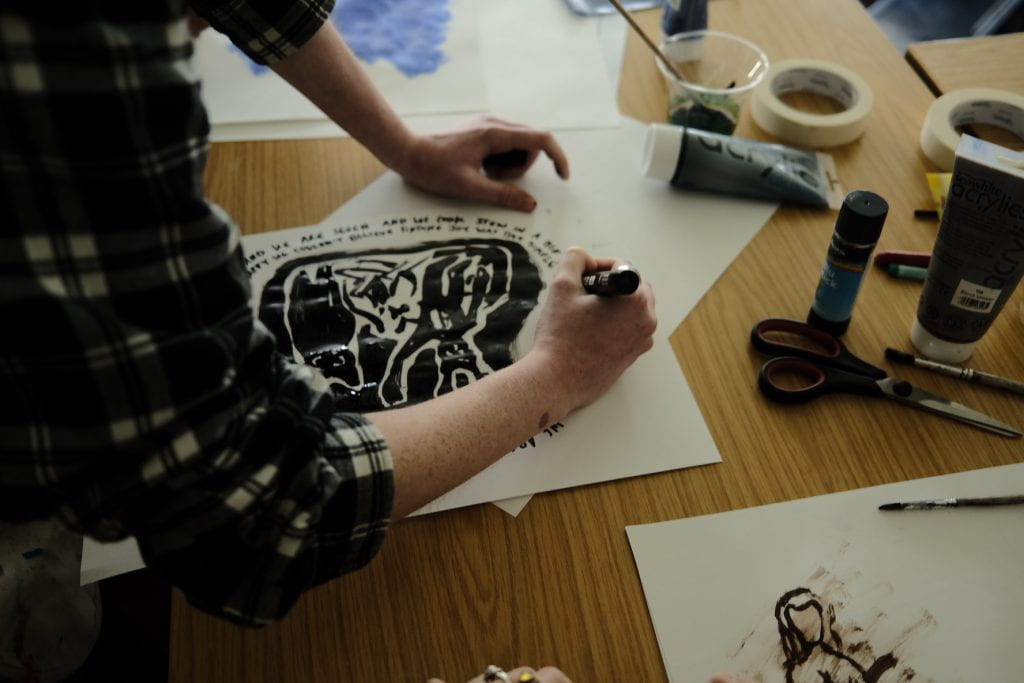
Speaker sessions:
The unseen legacies of oppression in participation.
Our first discussion session was introduced by Chantal Spencer whose work explores legacies of oppression that exist within traditional participatory design and research methodologies. Chantal’s work aims to move beyond prevailing ideologies of inclusivity, particularly those formulated by individuals in positions of power. She instead argues that radical philosophical shifts in thinking are needed, advocating for a transformative approach where those who are conventionally designated as the recipients of inclusivity actively lead the discourse. In this session, we will discuss the concept encapsulated by the disability rights movement’s coined phrase “nothing about us without us”. Approaching this from an intersectional feminist standpoint, we will explore the efficacy of participatory research practices in aligning with this call to action. The central question at hand is whether these practices genuinely contribute to the inclusivity and empowerment of marginalised communities, with a particular emphasis on women, or if they inadvertently perpetuate a superficial remedy that conceals broader systemic injustices.
